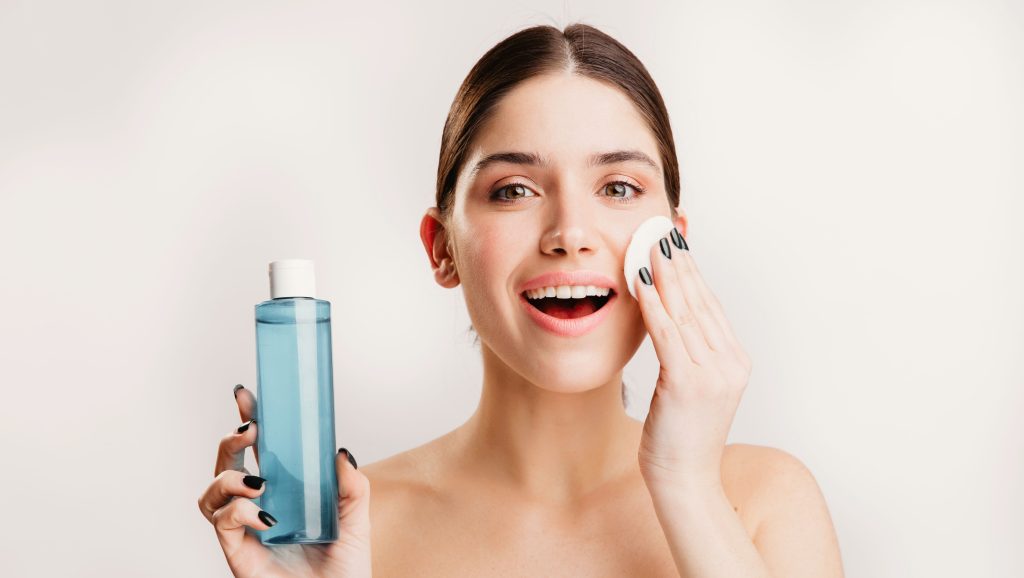Table of Contents
The secret to glowing, healthy skin isn’t just about finding the best products. It’s about understanding your skin’s unique needs, especially its thirst for moisture. This step-by-step guide will guide you through skin hydration from start to finish. We’ll dive into the importance of hydrating your skin, and provide you with easy-to-implement and easy-to-maintain tips to get the most out of your radiant skin.
Introduction
In the quest for a glowing complexion, it’s important to achieve and maintain healthy, hydrating skin. However, in today’s world, we’re bombarded with environmental factors, daily habits, and even natural aging that can erode our skin’s natural moisture barrier.
As a result, our skin can become dry, dull, and prone to early signs of aging. To fight back and unlock the potential of your skin, you need to understand the importance of proper hydration.
By implementing specific strategies into your daily routine, you’ll be able to restore and maintain your skin’s moisture levels, setting the stage for a glowing, youthful glow.
Understanding Skin Hydration

Moisturizer is only one part of the equation when it comes to skin hydration. It’s more than just a topical solution. Skin hydration is a multi-faceted process that includes internal nourishment as well as external protection. Let’s dive into the science, shall we?
Your skin’s natural ability to store water is essential. This function depends on the balance of water and natural oils in your skin. When external factors interfere with this balance, dryness can set in. By following strategies such as proper hydration by drinking plenty of water, eating plenty of water-rich fruits and vegetables, and using hydrating cleansers that are gentle on your skin’s skin’s moisture barrier, you’ll be able to maintain a healthy, radiant complexion.
The Importance of Hydration for Skin Health

Hydration is the foundation of healthy, glowing skin. When your skin is well-hydrated, it looks plump and smooth, reflecting its overall health. But when your skin is dehydrated, it’s a different story. Dryness, flaking, and increased sensitivity are no longer welcome guests. By focusing on hydration instead, you’re empowering your skin’s natural resistance and giving your skin a beautifully hydrated look. There is more to it than just drinking plenty of water.
Eating plenty of water-friendly fruits and vegetables, along with strategically using gentle cleansers, creates a space where your skin can thrive and reach its full potential.
Factors Affecting Skin Hydration

Our skin’s hydration is in a fragile state of equilibrium, constantly affected by internal and external forces. Understanding these forces is the key to creating a personalized approach to hydration.
Dry air, sun exposure, and extreme temperatures can break down your skin’s moisture barrier, resulting in dry skin.
Excessive caffeine and alcohol consumption can also dehydrate your body and skin. Your skincare routine can also lead to dehydration if it’s not tailored to your individual needs. For example, harsh cleansers or excessive exfoliation can lead to dehydration.
By identifying these potential disruptions, you can create a personalized hydration plan that addresses your individual needs, setting the stage for a healthy and balanced complexion.
Tips for Hydrating Your Skin

If you want your skin to look vibrant and hydrated, there are a few things you need to do.
- 💧 Focus on internal hydration. Drink plenty of water throughout your day.
- 🧴 Opt for skincare that’s packed with moisture-enriching ingredients like hyaluronic acid and glycerin.
- ☀️ Protect your skin from the sun’s UV rays and moisture loss by using a moisturizer with an SPF of 30 or higher every day.
- 🌬️ If you’re concerned about dry air, consider a humidifier. It’ll help fight dryness and keep your skin healthy.
- 🚿 Don’t use harsh cleansers on your skin that strip off natural oils. Instead, opt for gentle hydrating cleansers that preserve your skin’s natural moisture barrier so you can look and feel your best.
Skin Hydration Myths Debunked

The search for hydrated, glowing skin is often overshadowed by contradictory information. While hydration is essential for your overall health, it’s not the only factor affecting your skin’s moisture levels. Let’s explore some common myths about skin hydration and decipher the truth from the fiction:
Myth: Drinking more water guarantees hydrated skin.
Reality: Internal hydration is important, but external factors such as environmental factors, skincare routines, and even genetics have a significant impact on your skin’s moisture retention. Of course, drinking plenty of water is important for your body’s health, but external factors have a direct impact on skin hydration.
Myth: Oily skin doesn’t need moisturizer.
Reality: Contrary to what many people think, oily skin is not completely dehydrated. Oily skin lacks the water it needs to look plump and healthy. This can lead to flakiness, irritability, and even excess oil production to make up for the lack of water. Look for lightweight, oil-free moisturizers that are specifically designed for oily skin. They provide hydration without blocking pores or making oily skin worse.
Myth: Expensive skin care products guarantee superior hydration.
Reality: The secret to hydrated skin isn’t necessarily in the price. It’s in finding the right combination of ingredients and routine that works best for your skin type. Try different products and ingredients until you find one that works best for you. Concentrate on formulas with hyaluronic acids, ceramides, and other moisture-absorbing ingredients.
Myth #4: Daily exfoliation promotes hydration.
Reality: Exfoliation can help remove dead skin cells and brighten your skin, but over-exfoliation can be harmful. By stripping away your skin’s natural oils, you can damage the skin’s protective barrier, resulting in dehydration and irritation. Try to gently exfoliate 2-3 times a week, using products that are appropriate for your skin type.
Conclusion
Hydration is the key to unlocking the full potential of your skin. Once you understand the importance of hydration for overall skin health, you’ll be in a better place to create your skincare routine. From adding hyaluronic acids to your routine to using gentle cleansers to choosing an SPF-protected moisturizer, you’ll be able to customize your skincare routine to fit your specific needs.
Remember that internal hydration through water intake is essential, but it’s only one part of your overall hydration plan. Debut common myths such as “Oily Skin Doesn’t Need Moisturizer” By taking these strategies and personalizing them to your individual needs, you’ll pave the way to glowing, healthy skin that showcases your inner vitality.
Also Read: Unlocking the Marvels of Goji Berry: 5 Comprehensive Guide to its Health Benefits
Quick Answers
How often should I moisturize my skin?
Moisturize your skin twice daily, once in the morning and again at night, to maintain optimal hydration levels.
Can I overhydrate my skin?
While proper hydration is essential, overdoing it can lead to clogged pores and skin congestion. Stick to a balanced skin hydration routine.
Are there foods that can help hydrate my skin?
Yes, foods rich in water content, such as cucumbers, watermelon, and oranges, can contribute to skin hydration.
Can weather affect skin hydration?
Absolutely. Cold, dry weather can strip moisture from the skin, leading to dehydration and dryness.
Should I exfoliate if my skin is dehydrated?
Exfoliation can help remove dead skin cells and allow better absorption of hydrating products. However, opt for gentle exfoliants to avoid further drying out the skin.
Can stress impact skin hydration?
Yes, stress can disrupt the skin’s barrier function and lead to dehydration. Practice stress-relieving techniques like meditation and deep breathing to support skin hydration.
